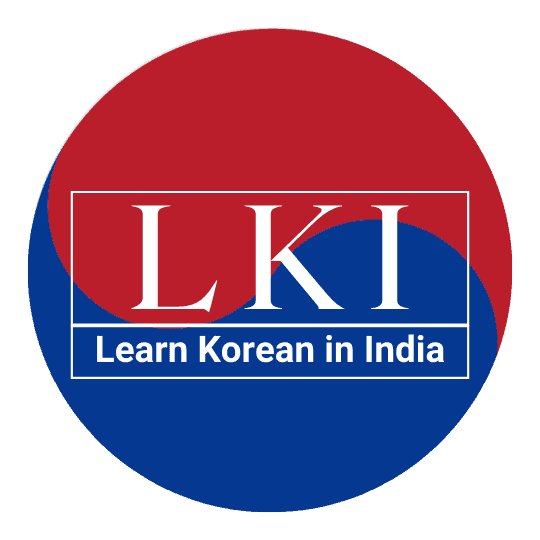Ever felt stuck while answering or even asking questions in Korean? Ever felt scared to use any level of speech while talking to a native in Korean? Don’t worry now, as we have got you covered! Here are different introductory questions and answers in Korean with different versions.
So let’s get into it!
-
What is your name?
This question is fairly considered easier, but it’s still better to learn the formal or honorific levels for this one.
-
이름이 뭐예요?
It is the true bookish way to ask somebody’s name. Wherein, 이름 is the name, while 뭐 is what? and lastly, the 예요 is the to be, is/am/are.
-
이름이 어떻게 되세요?
Now, this can be considered an honorific version to start a conversation as it is much politer than the upper one and perfect when talking or getting to know strangers.
어떻게 is how, while 되세요 is to become.
It states what about your name? Or how about your name?
-
성함이 어떻게 되세요?
This is a step upward than the above one. 성함 is the honorific version of 이름 that is the name. So, you are asking the same thing, but just a bit more honorific version.
Now let’s look at the answers.
-
저는 존이에요.
This is a plain version of telling your name.
저는 is I, 존 is an English name here John. And 이에요/예요 is to be, is/am/are.
If the noun is ending with a consonant (known as 받침 in Korean), add – 이에요 & if ending with a vowel, add – 예요. So the format goes like 저는 (이름)이에요/예요.
-
저는 (이름)입니다.
It is the same as the above one, just a bit politer version.
-
제 이름이 (이름)입니다.
It is just another way of answering as it means My name is (your name).
Herein, 제 is My, that’s the only knowledge we didn’t have.
-
What do you do?
In the Korean language, you can ask this particular question in 2 ways. Let’s see both of them!
-
직업이 뭐예요?
직업이 뭐예요? Simply means What is your profession/occupation?
As 직업 is a profession or occupation and 뭐 is what? So you can directly ask somebody like this. Or as learned above, we can even say 직업이 어떻게 되세요? This one will be much better considering the honorific level.
-
뭐 하세요?
뭐 하세요? Is the honorific version of 뭐 해요? Which means What are you doing?
Though this is one way of catching up with somebody, however, you cannot use this speech with your peers as it will sound really awkward. For that, stick to 뭐 해요.
This is just another nicer and more politer way of asking What do you do? Or What is your profession?
-
저는 (직업)입니다.
Now the format to answer is going to be simple as the above ones. At the place of 직업, just add your profession, and make a sentence.
Example: I am a Korean language teacher.
저는 한국어 선생님입니다.
-
What is your age?
In a lot of cultures, asking this question is considered extremely rude and disrespectful. However, in South Korea, it’s completely the opposite. They will very freely ask your age. It’s not because they want to be disrespectful, but they want to know a certain age in order to decide which speech they’d use to talk to you.
-
몇 살이에요?
몇 is What?/How many? And this will always be used with or for numbers, so this is what is different from 뭐 we had seen earlier. 살 is the counter for age and since it ends with a consonant, it will be 살이에요.
Hence, this question directly means What is your age?
-
몇 살이세요?
This one means the same as the above one just a pinch of politeness is added by that 이세요. We would advise using this one instead of the above one.
-
나이가 어떻게 되세요?
나이 is age. 어떻게 되세요 as explained above is just how about or what about.
Here as well, you are asking for somebody’s age, and that too in the honorific version.
-
연세가 어떻게 되세요?
It’s the same as the above one, but even more honorific as it has 연세 which is the advanced version of 나이.
-
저는 (나이)살이에요.
Now to answer just add your age to the bracket and there you go.
Example: I am 25 years old.
저는 스물 다섯 살이에요.
-
Where are you from?
-
어느 나라 사람이에요?
어느 is which, 나라 is a country, while 사람 in person, and since it ends with a consonant, it has 이에요 to it.
It altogether becomes Which country person are you? This is a bit weird at first, however, once you get hang of it, it will start making sense.
It indirectly means to ask you, Where are you from?
-
어디에서 왔어요?
어디 is where, 에서 here is from, 왔어요? Is came. So it becomes Where did you come from?
-
저는 (나라) 사람이에요.
This one is really simple. Just add the name of your country.
Example: I am from Canada.
저는 캐나다 사람이에요.
The literal meaning will be I am a citizen of Canada.
-
저는 (나라)에서 왔어요.
Here as well just add the name of your country.
Example: I am from India.
저는 인도에서 왔어요.
It will literally mean that you are from India (in this case). You just have to add the name of the nation.
-
Do you speak Korean?
It’s a valid question native Korean can ask you. So, be ready with it.
-
한국말 할 줄 아세요?
It literally means Do you know how to speak Korean? People can ask you that in order to communicate easily.
-
네, 알아요.
You can simply reply with, 네 which is yes, 알아요 I know.
-
한국말을 할 수 있어요?
This means Can you speak Korean?
-
네, 할 수 있어요.
If you know, you can simply say, 네 yes, 할 수 있어요, I can do it. And here it will mean that you can speak Korean.
-
아니요, 못 해요.
If you don’t know, learn the format by heart.
아니요 (Aniyo), 한국어 (Hanguk-eo) 못 해요 (mot haeyo). It simply means you can’t speak Korean.
Bonus question: 영어를 할 줄 알아요?
Now, what if you want to ask somebody if they can speak English? Just add 영어(를) to the 할 줄 알아요 pattern we have seen above. It will simply mean Do you know how to speak English? Or by the context it can also mean Can you speak English?
LKI (Learn Korean in India) offers the best Korean language courses for Indian learners. Check out our 3 Months Intensive Korean Language Courses & Youtube channel, Learn Korean In India, for unlimited FREE resources.

